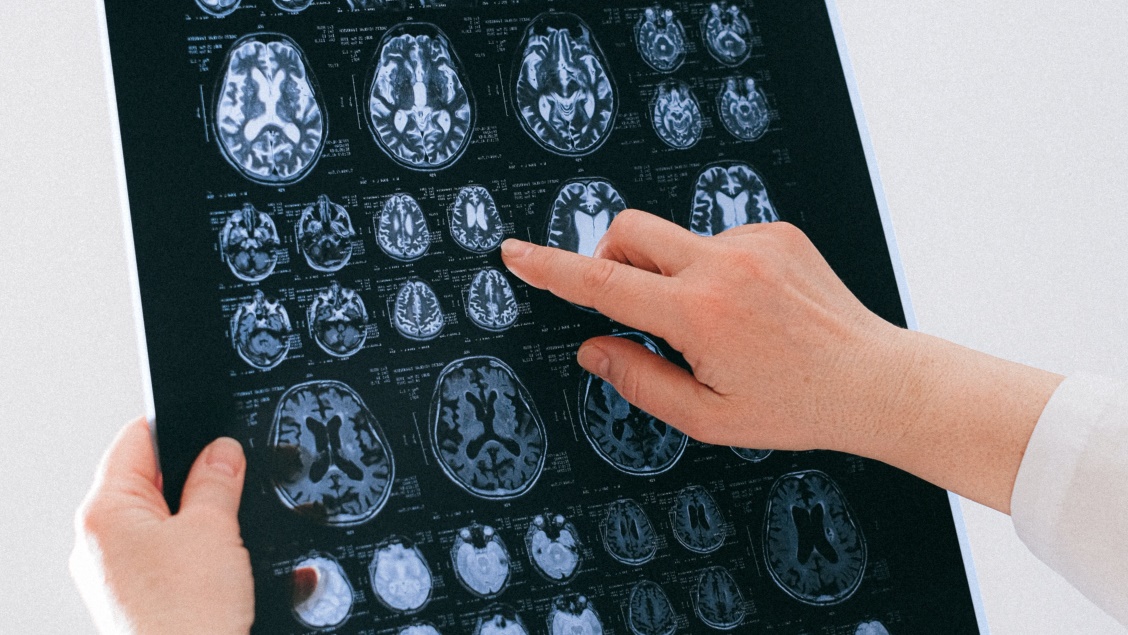
What Studying Dementia Teaches Us About the Brain
Dementia research involves engaging with the mysteries of the human brain. Here, we delve into what the global research battle against neurodegenerative diseases reveals to us.
Dementia refers to the decline of different cognitive and emotional abilities, typically caused by shrinkage in brain tissue. It has no cure, and the high costs for detection, treatment, and patient care mean it causes a heavy global burden.
In response, researchers are working globally to fight it, and in doing so, revealing interesting insights into the human brain. First, we’ll explain what dementia is and its most common forms, then delve into what dementia teaches us about the brain.
What is dementia?
Dementia is an umbrella term for diseases that cause a gradual loss of the structure and function of neurons, also known as nerve cells.
Because the brain is a complex network of neurons connected by blood vessels that provide oxygen and nutrients, any disruption can cause rippling effects. This means that symptoms reflect which part of the brain is affected first and then, as it spreads, they gradually become like other cases.
The three most common causes of dementia are Alzheimer’s Disease (AD), Vascular Dementia, and Dementia with Lewy Bodies. AD is the most common cause, accounting for 60‒80% of cases. Each disease restricts the brain in different ways, causing certain areas to stop functioning as they should.
Let’s delve into dementia research and see what it shows us about the brain.
Artificial intelligence can detect early dementia
A study in Bioengineering uses artificial intelligence (AI) to detect dementia through people’s facial features.
The traditional methods for diagnosing dementia include brain scans and psychiatric tests. These are resource-intensive, costly, and sometimes invasive, and require expertise to analyze the results. This can mean people are deterred from seeing a medical professional if they are beginning to experience symptoms, delaying crucial care.
These authors suggest that using AI could present a non-invasive alternative.
Using facial scans
The authors use three different methods to test this, and one had 79% accuracy in dementia detection. This was the Histogram of Orientated Gradients (HOG) features.
HOG involves extracting information from an image. It does this by breaking the facial features up into tiny image cells. Then, it captures data from each image cell and uses them to notice any differences in patterns between various faces by tracking changes and movements.
Because AI can analyze huge amounts of information rapidly, we can use it to spot dementia in ways not visible to the human eye. In this case, studying dementia teaches us that the disease subtly alters the body even in its early stages, which could help us to detect it without performing invasive tests early on.
Music therapy
Music is a universal human recreation that goes back at least 35,000 years. It’s highly personal and can play a big role in people’s identities. As such, an article in IJERPH investigates using personalized music experiences to help people suffering from dementia living in the community.
Music blurs the line between recreational and therapeutic. The authors highlight that music is associated with various health benefits for people with dementia. These include improved communication, mood, and memory; reduced behavioral and psychological symptoms; and an overall enhanced quality of life.
How we can use music
Depending on how affected the person is by dementia, music can be used actively or passively through listening, singing, dancing, playing instruments previously learned, or even learning a new instrument if possible.
Because music affects the brain in complex ways, these activities trigger various parts of the brain that are in communication with each other, potentially enabling people to “connect with their identity and life history, acting as a springboard for reminiscence”. For this, music therapy must be personalized and responsive to the person’s needs and abilities.
Studying dementia teaches us that music helps us to connect with our memories and feelings by activating our brains in complex ways. Dementia may take someone’s sensory memory away, but emotional and cognitive memory can survive for longer, such as in cases of people with dementia being able to remember how to play the piano.
How diet affects your brain
The foods you eat may be more important to your overall health than you realize. An article in Nutrients outlines the current knowledge on how important diet is in the prevention of AD.
The authors summarize that good diets need what they call “neuroprotective nutrients”, and that a diet deficient in these could be a factor in developing AD. Also, a high-fat diet and excess saturated fatty acids (SFAs) may also contribute to developing AD.
They summarize what a diet that is rich in neuroprotective nutrients should include:
- Antioxidants: vitamins E, C, and D; B vitamins; polyunsaturated fatty acids; calcium; magnesium; and polyphenols.
- Required amounts of good quality protein and energy.
- Reduced amounts of saturated fat and simple sugar intake.
Adopting a plant-based diet
Another article, this time in IJMS, highlights that adopting a whole-food vegan diet could be beneficial in preventing neurodegenerative disorders.
This is because whole-food vegan diets are high in neuroprotective nutrients and fiber and low in saturated fats and cholesterol. This decreases the chances of developing diabetes, obesity, insulin resistance, and cardiovascular diseases, which are linked to dementia.
Studying dementia teaches us that diet affects not only our bodies but also our brains. A healthy, diverse diet supports your brain, can reduce the risk of developing dementia, and help to slow down its progression in those already suffering from it.
Ensuring dementia research is accessible
Studying dementia teaches us that the disease affects people early on, in ways not even visible to the human eye, that music is a way to access our identities even as sensory memory loss occurs, and that diet has a profound effect on our overall brain health.
MDPI makes all its research immediately available worldwide, giving readers free and unlimited access to the full text of all published articles. Are you looking to join this global effort to help fight dementia? Why not consider submitting to the journals mentioned here: Bioengineering, IJERPH, Nutrients, or IJMS? See our full list of journals here.
Dementia currently has no cure. There are nearly 10 million new cases every year, and this number is rising. Research must be coordinated and cooperative and the results must be accessible to all.











Excellent article I am care giver for my mother 92 years old with vascular dementia